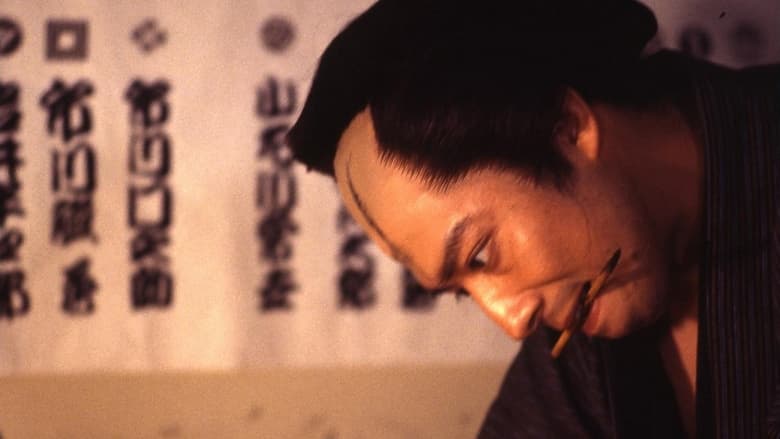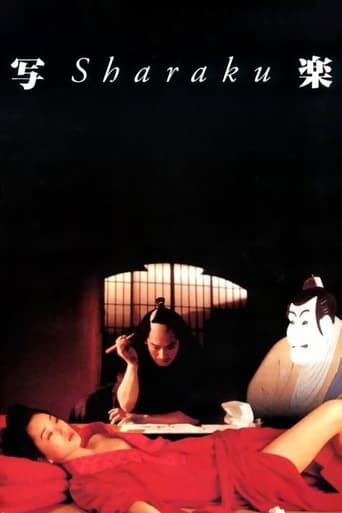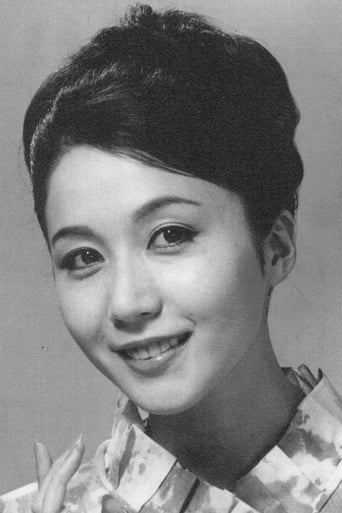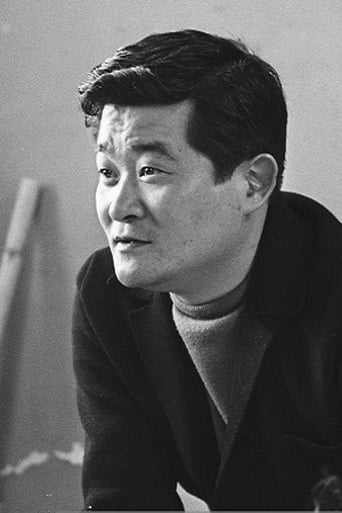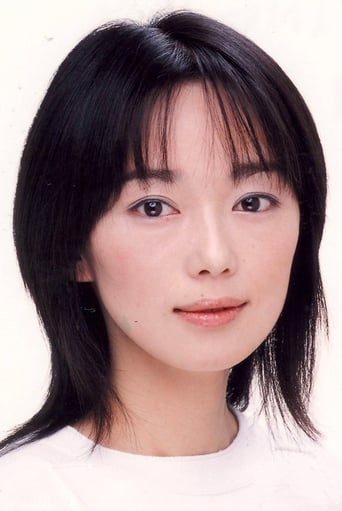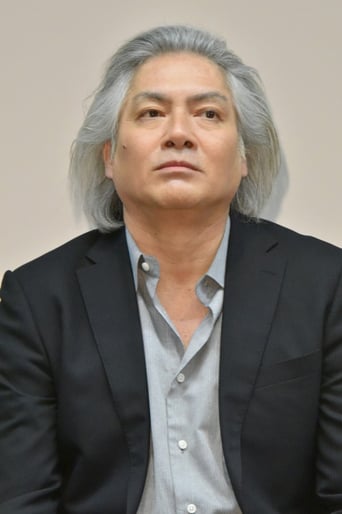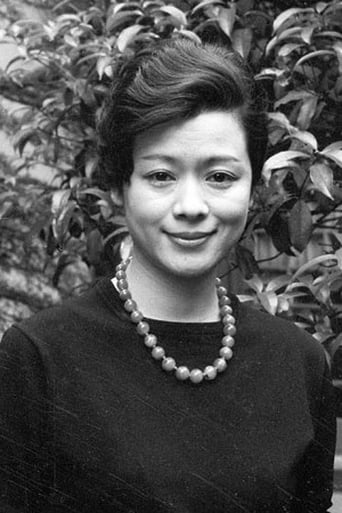A crippled kabuki player is taken into a strolling company of itinerant actors. An influential publisher notices his honest, bold drawings, and nurtures him despite persecution and betrayal. The film explores the eternal relationship between artist and producer, and describes the emanicipation of a man who refuses to let himself become the plaything of power and money.
Reviews
The thing I enjoyed most about the film is the fact that it doesn't shy away from being a super-sized-cliche;
This is a small, humorous movie in some ways, but it has a huge heart. What a nice experience.
One of the worst ways to make a cult movie is to set out to make a cult movie.
Through painfully honest and emotional moments, the movie becomes irresistibly relatable
I think this is a movie where it helps to know at least a little Japanese. There is some fun wordplay in it. I haven't seen it with subtitles yet, so I'm sure I've missed a lot, since I am not in any way native-speaker proficient in Japanese. I think the parts that may seem slow-moving go a little faster if you know Japanese.All the performances are excellent. There is a wonderful physicality to the acting, not just the dance, acrobatics and fight scenes. As in kabuki, every movement tells a story with great precision and power. The score combines elements of traditional shamisen, flute. vocals and percussion with Jazz-age orchestral passages. It works to show the parallels between Late-Edo era Japan and the 1920's in the U.S., both times of semi-controlled, hypocritical lawlessness. The title character, played by Hiroyuki Sanada, could have stepped out of an F. Scott Fitzgerald novel.Major props to Frankie Sakai, a jazz drummer turned movie producer and actor, for a fine performance as the publisher Tsutaya, and for being the force behind the tone of the film.
This film features a revolutionary artist named Sharaku in Edo-era Japan. Because the artist hasn't been identified by historians and we are not sure who he was, this historical film is based on a imaginary story like several Jack the Ripper films. According to this film, the artist was born as a child of single parent who earned the living by painting with colored sand on street. He lost his single mother at the age of 6 and joined an acting troupe through his late mother's lover to grow up. He was talented not only with acrobatics on the stage but with painting. One day he happened to be employed as a contracted painter by a large capitalist-publisher. The publisher employed such an amateur because he searched for novel in order to recover the popularity of his own Kabuki company and Sharaku had it. Sharaku created amazingly realistic paintings which then Japanese public with dogmatic values can never create or accept.Probably, the producers of this film wanted to tell Sharaku's realistic art was unexpected enlightenment in Japanese art and indirectly its society of late 18th century. In one scene, Rouju (I don't know how to translate this word, 'senior council member' would be good) Matsudaira tells us that Samurai's governance might be obsolete and might not fit the growing mercantile society. And in another scene, the artist refused to paint persons he never saw, but the people around him never found his refusal reasonable. These 2 scenes reflects the film's historical and social view, especially the latter depicts then Japanese public's fixed artistic values that supported the old Eastern idea that art should imitate art itself, not reality. This film in the end implies that Sharaku's art was passed on to Hokusai's.
Slow and very talky, but not however too bad.The cover art promises salacious content which is not fulfilled, apart from one sensational image. A pornographic sketch of a man and woman about to have sex with enormous genitals.On the plus side, the cinematography is impressive, the slow street parading of the high-class prostitutes particularly so.Much too much screen time was spent with dialogue and minor dramatics about artistic tantrums and angst. This film could have been a lot more interesting, particularly given the outstanding talent on and off screen. Still, not too bad, if you get ready for a gentle pace before starting the movie.
Top Streaming Movies











